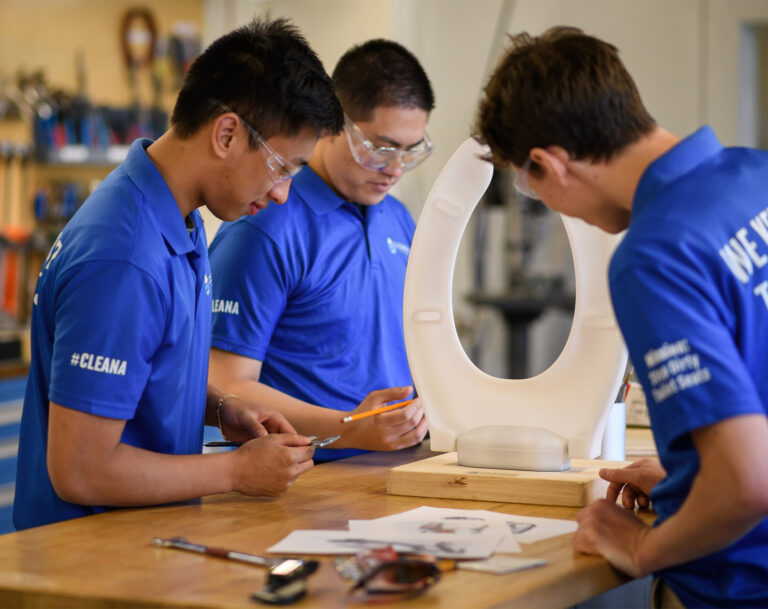COURSE CODE: si480
COURSE CODE: im860
This course provides an action-based learning experience for students interested in understanding how for-profit and non-profit organizations develop innovative products and services that help mitigate grand challenges such as climate change, food security, global health, and poverty, and enable them to grow their business and sustain their competitive advantage over time. Students will work on a live 'social impact' consulting project for a client from the host country, and present their recommendation to the client while in the country. Furthermore, students will visit and interact with various players in the social impact sector (e.g., entrepreneurs, high-level executives, non-profit leaders) to learn about the opportunities and challenges they face. This course is ideal for students interested in social impact, sustainable energy, environmental sustainability, social entrepreneurship, socially responsible investing (SRI), and global health and healthcare.
COURSE CODE: si750
"Competition, Innovation, and Strategy" is an integrative course designed to capitalize on your understanding of Finance, Operations Management, Marketing, and other functional issues. The course draws on a number of academic disciplines, especially economics, organization theory, and sociology, to build a fundamental understanding of how and why some firms achieve and sustain superior performance. We also study why some firms persistently generate returns that are lower than average. The course is analytically focused and requires that you evaluate both the external environment and the internal capabilities of organizations. Corporate diversification and global management are important topics that are also featured.
COURSE CODE: si839
This class will examine how managers and leaders can create the conditions for innovation at the individual, team and organizational levels – and how those conditions differ for startup and mature organizations. Managing innovation includes the generation of ideas; the integration of ideas into new product concepts; and the commercialization of ideas. While core strategy courses address the questions of what innovations to pursue and whether and when those innovations will bring value, this course addresses the question of how managers can create organizations to deliver innovations of value. Thus, the course will focus on the practices and processes that mangers need to put in place to enable organizations to execute on an innovation strategy. In doing so, students will evaluate how to balance the challenges of organizing, managing and leading innovation with the need to produce concrete, routine and expected outcomes within the organization. To be innovative, any new idea must resolve the innovation paradox – introducing enough novelty to appeal to new markets while retaining enough familiarity to tap into existing behaviors. Because design and innovation are frequently inseparable in managing this paradox, the class will assess how design contributes to innovation in product, process and business models across industry sectors. The course will also consider the role that all sources of innovation play – including communities, networks, brokers and other forms of open innovation. Students will be asked to reflect upon innovations that have been critical to their lives, and how these innovations were produced and gained market traction. Final group projects will explore how to “rescue” innovations in trouble with turnaround teams.
COURSE CODE: si858
COURSE CODE: si451
COURSE CODE: si860
This course will give students an understanding of the challenges of undertaking innovation within an existing corporate organization or other large institution such as governments or universities. Established industries are being disrupted by innovative products and services at an increasingly fast pace. Corporate leaders are confronting a dynamic shift from formal stage gate innovation approaches toward more entrepreneurial, iterative, fast-paced innovation processes such as agile development, design thinking, lean startup, rapid prototyping, and the business model canvas. To deliver innovative results, corporations must bridge ideas generated in the labs of tomorrow with current operations. This course aims to accelerate learning on corporate innovation by examining how corporate innovators can stay nimble and enable smart experimentation without risking the competencies that made them great. As the need to innovate becomes a matter of "life and death," how do large organizations successfully innovate? We will examine how techniques and frameworks developed in the startup world are being adapted for the corporate one and how established organizations select from a portfolio of options to foster innovation.
COURSE CODE: is827
To thrive in modern economies, managers, entrepreneurs and investors need a thorough understanding of business platforms. Thousands of firms, from Facebook to Salesforce, now operate as open ecosystems that match buyers and sellers, gain value and market share from network effects, and harness their users to innovate. Drawing on cases from social media, entrepreneurship, enterprise software, mobile services, healthcare, and consumer products, students will analyze and learn to negotiate platform startup, convert existing businesses, and make vital decisions on issues of openness, cannibalization, and competition. Students will interact with execs of major firms such as Cisco and SAP and with startups. They will learn to apply concepts from two sided networks, industrial organization, information asymmetry, pricing, intellectual property, and game theory to real problems. Known worldwide for his work on network business models, Professor Van Alstyne provides students with the tools to leverage key principles into hands-on creation and management of real-world platforms.
COURSE CODE: sr850
This course is designed to: (1) explore the concepts, practices, opportunities, and challenges of social entrepreneurship; (2) provide frameworks and tools that will help students be more effective in this sector; and (3) provide an opportunity for students to create a business plan for a new social enterprise or an income-generating initiative of a nonprofit organization. In the business plan project, student teams will partner with external organizations. Students will identify and analyze opportunities, resources, and risks and apply skills from marketing, accounting, organizational behavior, strategy and other disciplines. Special emphasis will be placed on aspects of business planning and organizational strategy that are particularly challenging or distinctive in the social sector, including mission definition, leadership, organizational structure, raising capital, and measuring results.
COURSE CODE: is474
COURSE CODE: si430
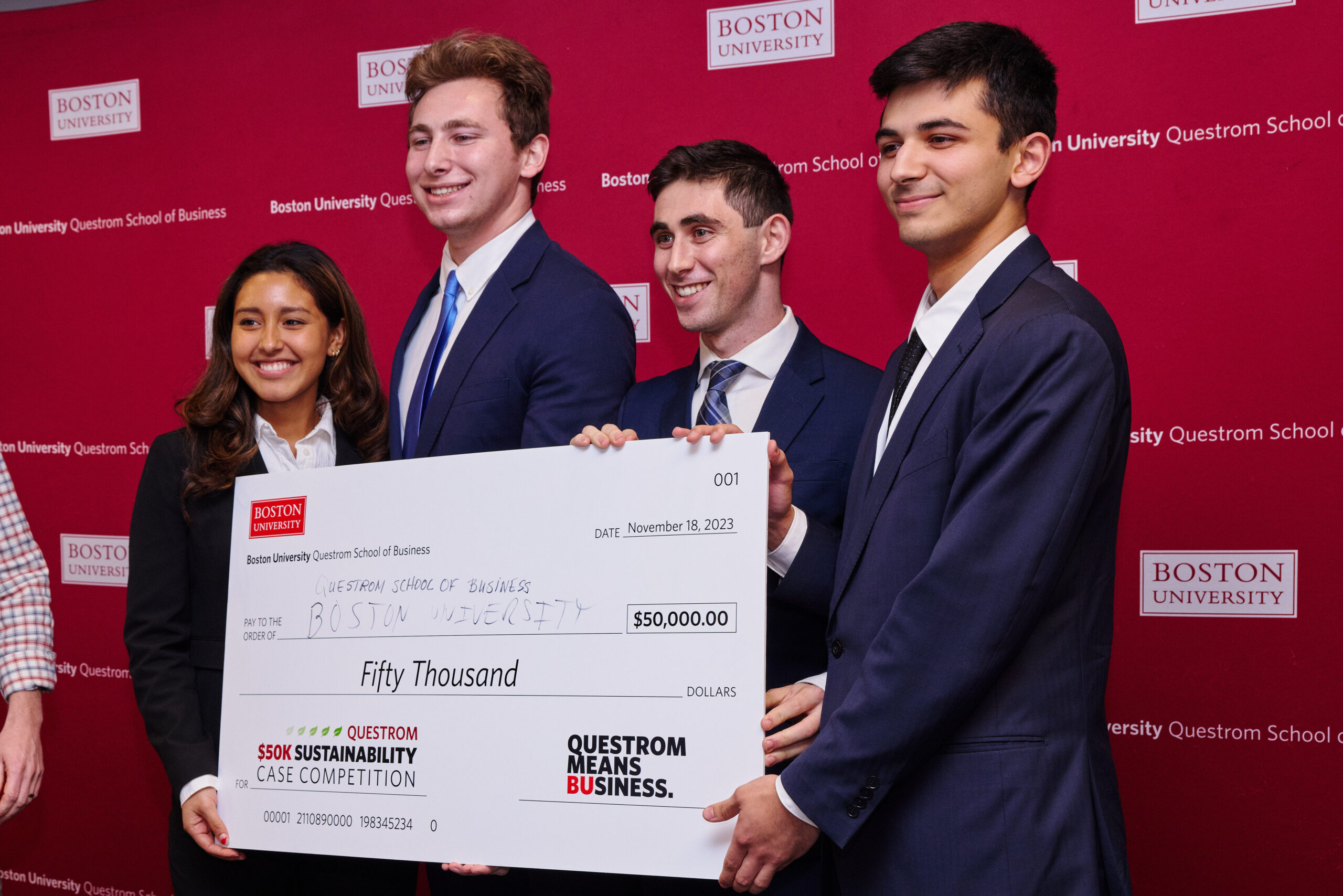
Conferences, Challenges & Case Competitions
Prepare to roll up your sleeves and craft top-notch solutions while polishing your critical thinking, problem-solving, and teamwork chops. Working alongside fellow innovators, you’ll unleash a whirlwind of creativity, cooking up ideas built to last.
Innovate@BU
Innovate@BU is a University-wide initiative to enable all BU Terriers to become drivers of innovation in their own lives, careers, and communities. Through its physical home, the BUild Lab, it provides a variety of signature programs that foster an entrepreneurial mindset and help students turn their ideas into something real.
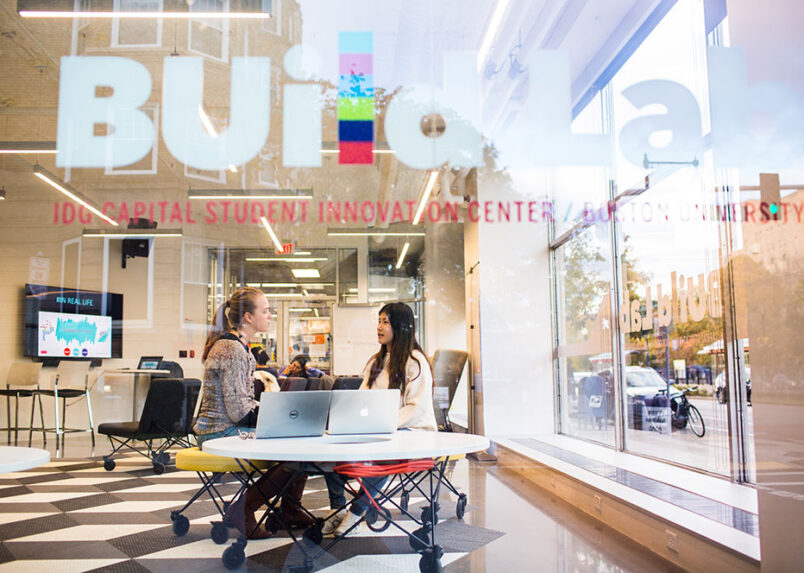
Innovation & Entrepreneurship Minor
The Innovation & Entrepreneurship minor paves the way for an innovative career in any industry, equipping students with skills such as opportunity recognition, idea generation, prototyping and testing.
Not just for students that want to launch a start-up…
This minor is also for students that want to learn how to embrace entrepreneurship in every facet of life.
Paulina Carregha Garcia’23
Social Impact MBA + MS in Energy & Environment
She is striving to bring revolutionary energy innovations and technologies to Mexico, her home country.
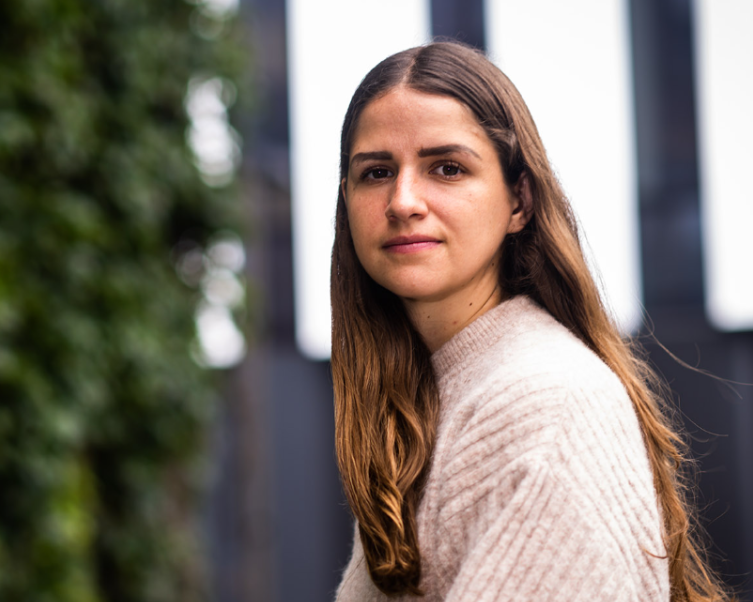
Insights@Questrom Podcast Episode on Innovation

Ian Mashiter, Master Lecturer and Curriculum Director of Innovate@BU, Maria Gorskikh, co-founder and president of DreamVenture Labs, and Johar Singh, co-founder and CEO of Astra Wellbeing, talk about innovation opportunities at BU Questrom.
Questrom and BU Means Innovation and Entrepreneurship, Insights@Questrom
Student-Led Innovations
Questrom students employ innovative and entrepreneurial mindsets to solve society’s hardest problems.
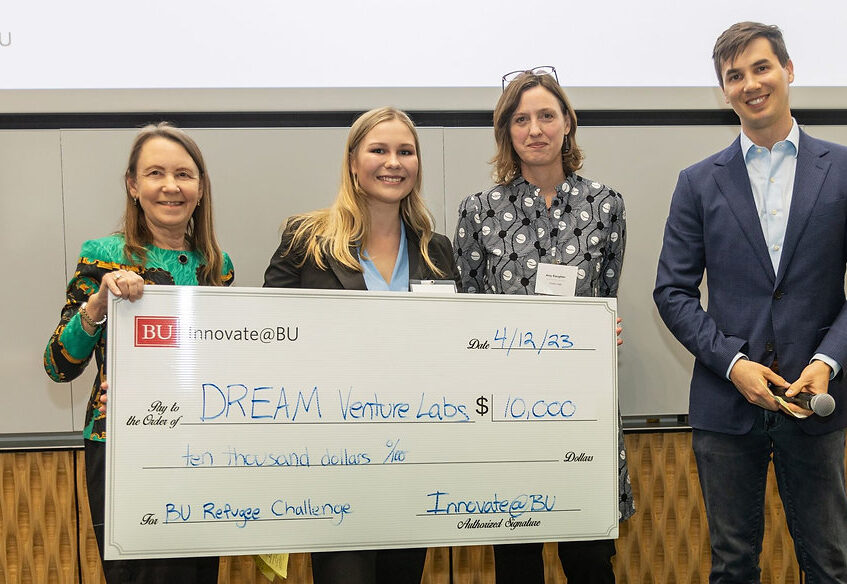
Maria Gorskikh’23: DREAM Venture Labs
This non-profit organization is dedicated to empowering refugees and immigrants to launch and grow their own businesses with the partnership of business students.
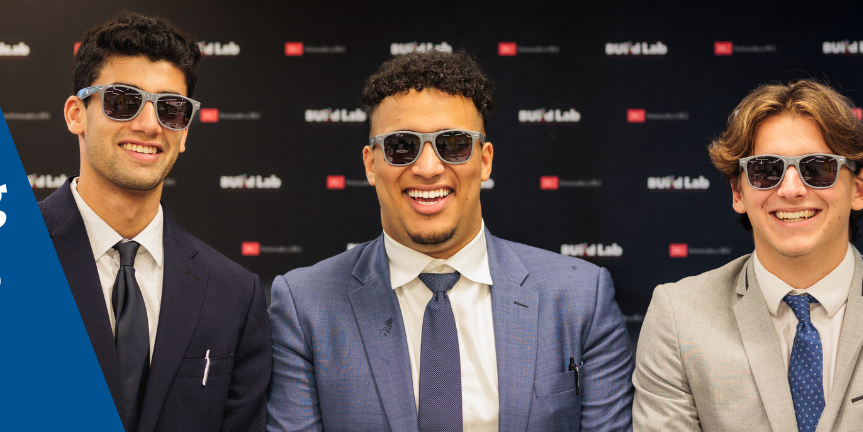
Johar Singh’23: Astra Wellbeing
Questrom students launch a healthcare employee recognition platform to combat the health care worker burnout crisis.
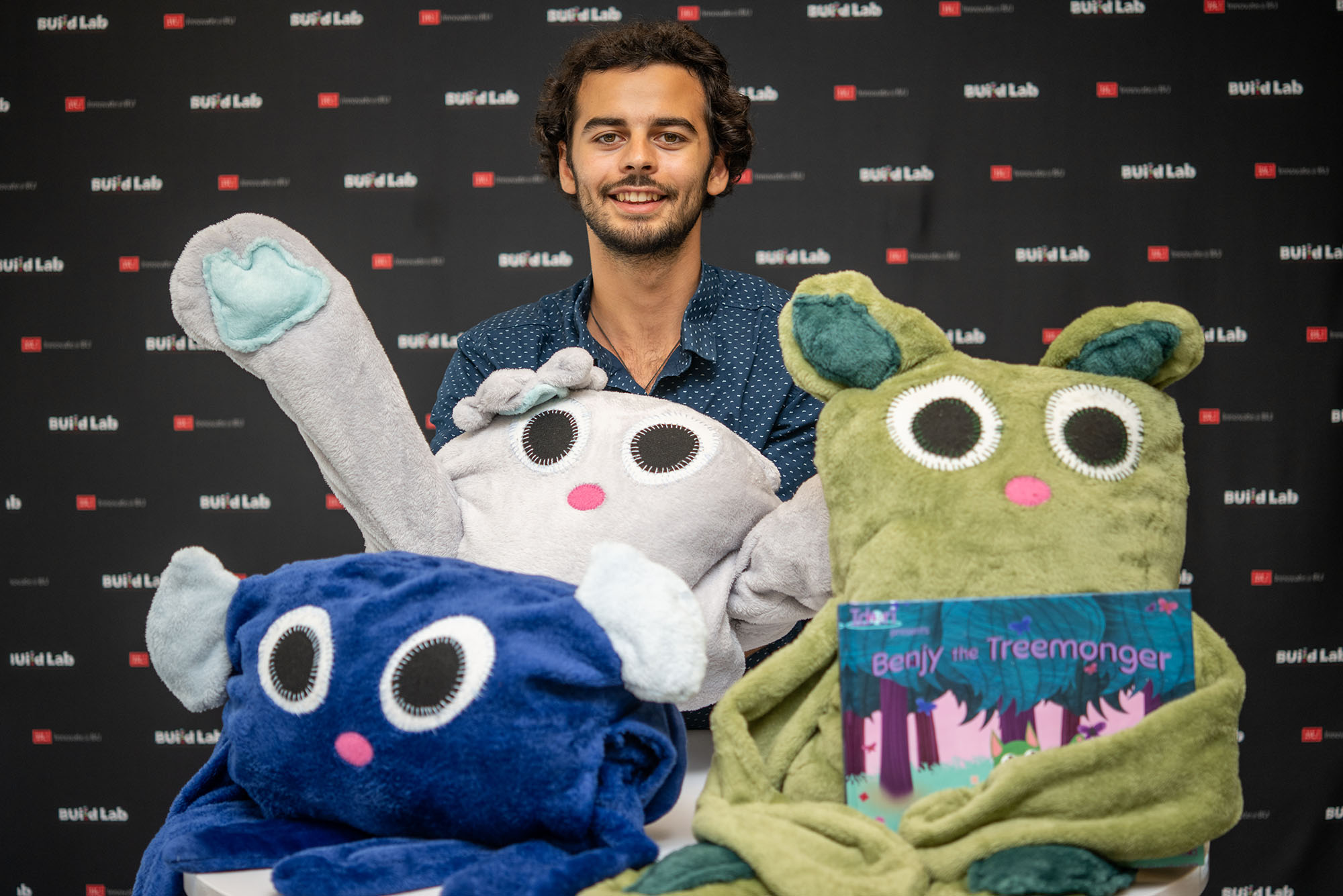
Noah Sorin’24: Idori
Sorin founded Idori, an acronym for “I Dream of Real Impact,” in February 2021. Idori sells eco-friendly stuffed animals and children’s storybooks with the mission of instilling sustainable habits in the next generation.
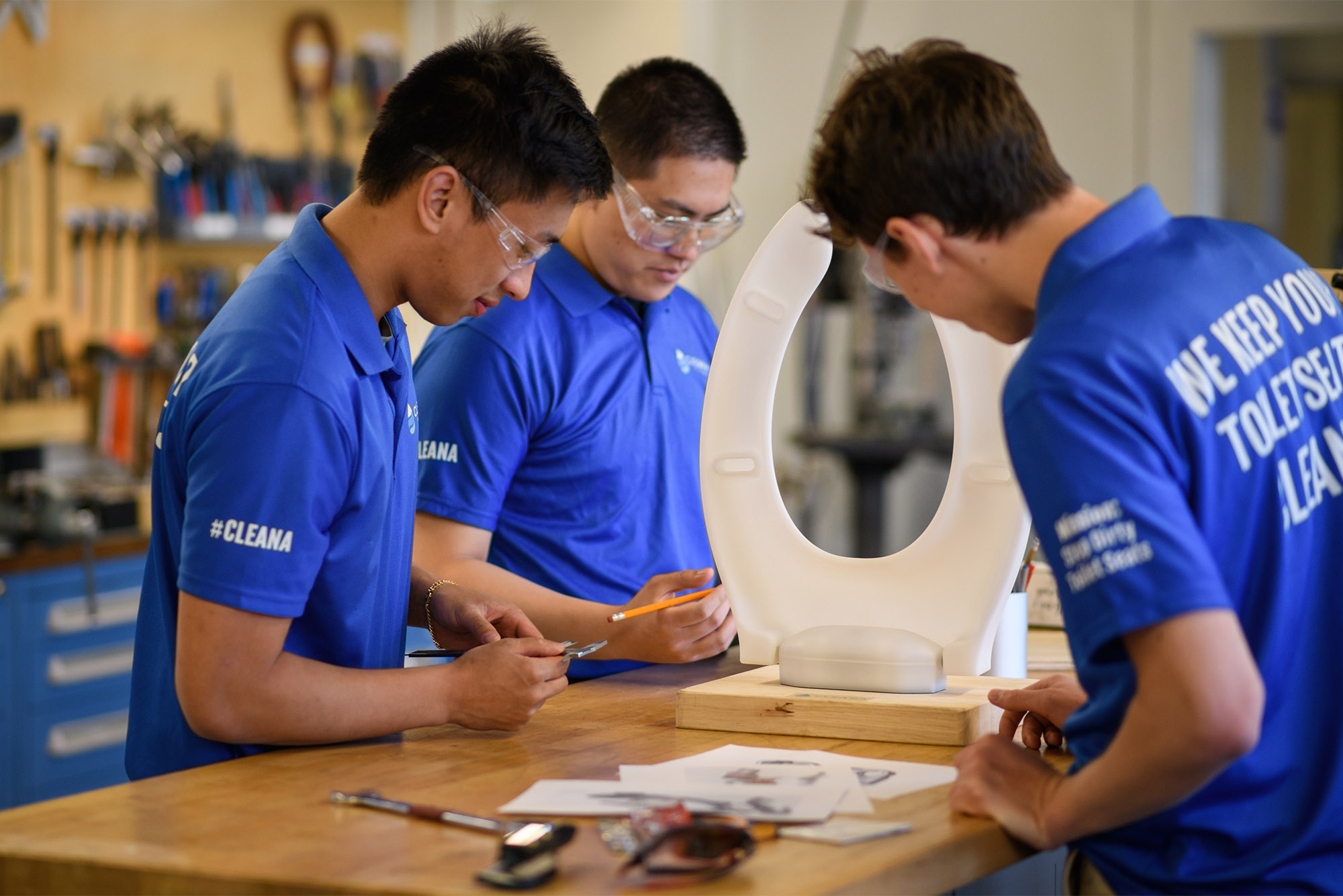
Max Pounanov’23 & Kevin Tang Questrom’22: Cleana
Alums launch Cleana, a new company that seeks to make dirty toilet seats a thing of the past.

Prianna Sharan’25 & Remi Chester’25: Popple
Popple is an app that aggregates events at BU and around Boston geared towards college students, like Innovate@BU’s IdeaCon or Indie Music at Wonderland Allston. Users can filter events based on their interests, such as art, technology, hiking, and more.
Philomena Asanta’26: Diva Docs Black Women MD
This platform connects Black women doctors and doctors in training, providing them with a diverse network of allies to combat low diversity in healthcare leadership.
Tanya Gabrielian’26: The Delta Project
Addressing issues in classical music such as quality, lack of education, and monetization through a modernized and equitable platform.
Viet Bui’24, Natalie Ciardi’24, Yasuhiko Morita’24, and Louie Rabinovitz’24: Dated Delights
Dated Delights strives to improve food access to underserved communities while reducing food waste for local restaurants, grocery stores and cafeterias.
Gina Ellis’25: Sustainbull
A tool that provides resources to people to learn about sustainability and implement Earth-friendly habits into their daily lives.
Justin DiRaddo’24: Snazz
Snazz is the first, realistic effort to end phone addiction.
Haku Chao’25, co-founder of Algo-Rhythm
Algo-Rhythm helps you find your emotions and identity from your favourite songs. Because there is no better feeling than when a song can push you getting through a day.

